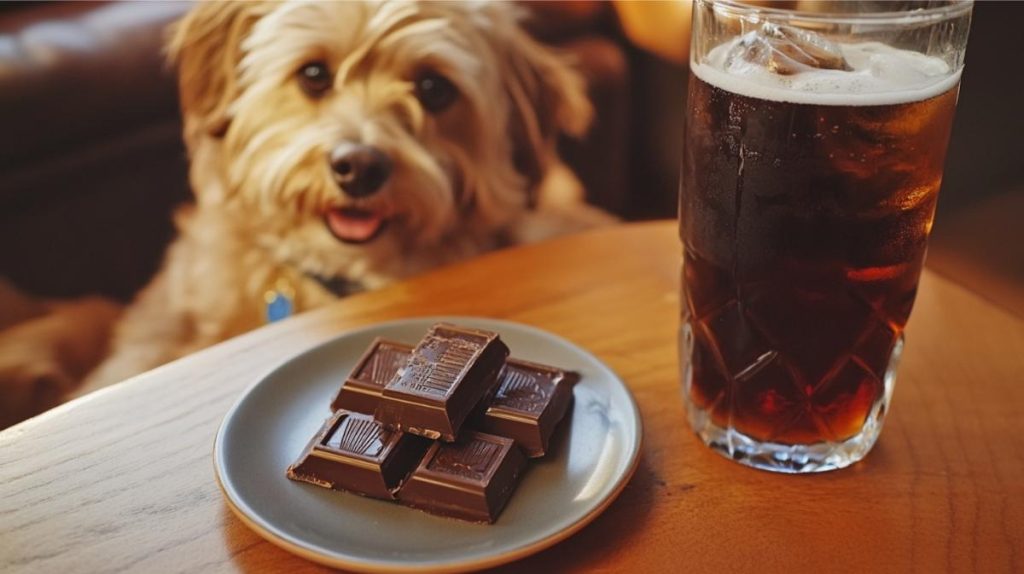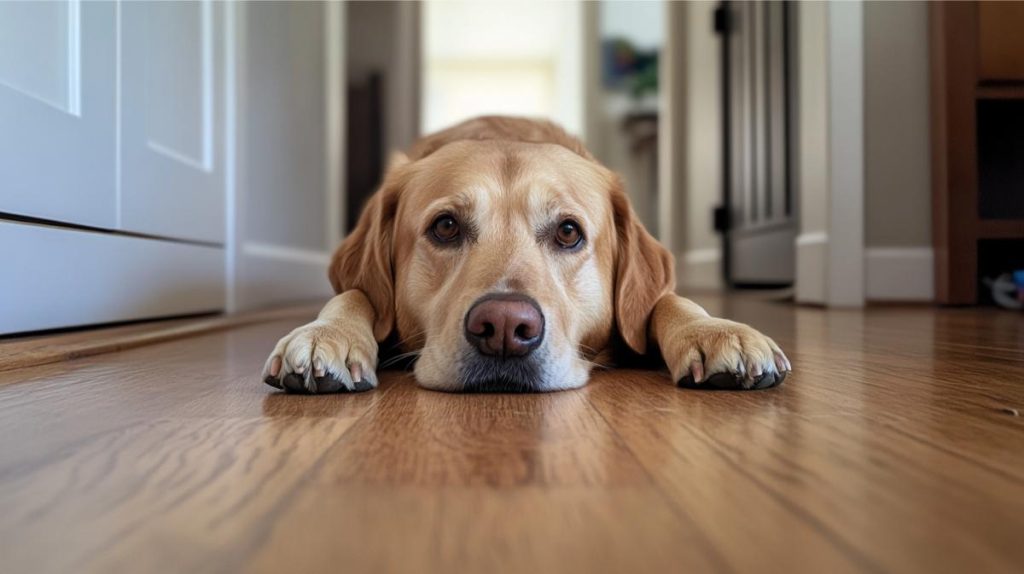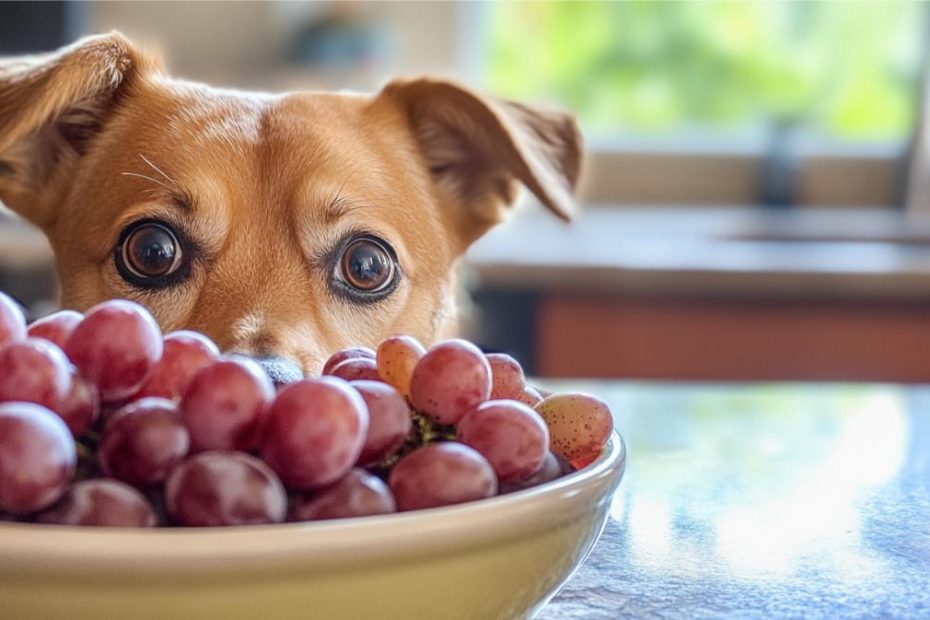Many pet owners love sharing snacks with their furry friends. But not all human foods are safe for animals. Some common foods in your kitchen can be harmful or even deadly to dogs and cats!
Certain fruits, vegetables, and other everyday items can cause serious health problems if eaten by pets.
Grapes and raisins may lead to sudden kidney failure in dogs. Meanwhile, chocolate contains chemicals toxic to both dogs and cats. Even sugar-free gum with xylitol can make your pup very sick.
Knowing which foods to keep away from your pets is key to keeping them safe and healthy. You’ll want to be extra careful with items like onions, garlic, and caffeine.
If you think your pet ate something bad, call your vet or an animal poison control center right away. Quick action can make a big difference!
Key Takeaways
- Many common human foods can be toxic or fatal to pets if ingested
- Be aware of harmful items in your kitchen and keep them out of your pet’s reach
- If you suspect your pet ate something dangerous, contact a vet immediately
Household Culprits: Foods to Avoid Feeding Your Pet
Your furry friends might give you puppy eyes for a taste of your meal, but some human foods can be dangerous for pets. Let’s look at the common household items that could spell trouble for your four-legged pals.
Sneaky Sweets and Beverages

Chocolate is a big no-no for your pets. It contains theobromine, which can cause chocolate poisoning in dogs and cats. Remember, the darker the chocolate, the more dangerous it is.
Watch out for xylitol too! This artificial sweetener lurks in sugar-free gum, candies, and some peanut butter. It can cause a rapid drop in blood sugar and liver failure in dogs.
Your morning brew is another culprit. Caffeine in coffee, tea, and energy drinks can be harmful to pets. It can cause restlessness, rapid breathing, and heart palpitations.
And that glass of wine? Keep it to yourself! Alcohol can lead to alcohol poisoning in pets, causing vomiting, loss of coordination, and even coma.
Fruits and Nuts That Are Nuts for Pets
Grapes and raisins might seem harmless, but they can cause kidney failure in dogs. Even a small amount can be toxic, so keep those fruit bowls out of reach!
Meanwhile, macadamia nuts are another sneaky danger. They can cause weakness, depression, and hyperthermia in dogs. Other nuts like almonds and walnuts aren’t toxic but can cause upset tummies.
Avocados contain persin, which can cause vomiting and diarrhea in dogs. While cats are less affected, it’s best to keep this creamy fruit off their menu.
Citrus fruits like lemons, limes, and grapefruits contain essential oils that can irritate your pet’s digestive system. A little taste won’t hurt, but too much can lead to tummy troubles.
Veggies and More That Don’t Mix
Onions, garlic, and chives are a triple threat to your pets. They can damage red blood cells, leading to anemia. This applies to all forms – raw, cooked, or powdered.
Meanwhile, raw or undercooked meat and eggs can contain harmful bacteria like Salmonella or E. coli. They’re just as dangerous for pets as they are for humans.
Salty snacks might seem tempting to share, but too much salt can cause excessive thirst and urination. In severe cases, it can lead to sodium ion poisoning.
Yeast dough is another unexpected danger. As it rises, it can cause gas to accumulate in your pet’s digestive system. This can be painful and potentially cause dangerous bloat.
Recognizing and Responding to Food Poisoning

Food poisoning in pets can be scary, but knowing what to look for and how to act quickly can save your furry friend’s life.
Let’s dive into the tell-tale signs and what you should do if you suspect your pet has eaten something they shouldn’t have.
Identifying Symptoms
Keep your eyes peeled for these red flags:
- Vomiting (sometimes with blood)
- Diarrhea (may be bloody)
- Loss of appetite
- Lethargy or weakness
- Abdominal pain
- Excessive drooling
If your pet has snacked on raw meat, eggs, or dairy, be extra vigilant. These foods are notorious troublemakers!
Yeast dough can also be a sneaky culprit, causing bloating and even alcohol poisoning. Yikes!
Remember, different foods can cause various issues. Salty snacks might lead to sodium ion poisoning, while bones could cause choking or internal injuries.
Keep an eye out for signs of kidney failure or pancreatitis if your pet has eaten something toxic.
Immediate Actions and Treatment
Time is of the essence! If you suspect food poisoning:
- Remove any remaining food.
- Don’t induce vomiting unless instructed by a pro.
- Call your vet or the ASPCA Animal Poison Control Center ASAP.
Bring a sample of the food or packaging to help identify the culprit.
Your vet might recommend:
- Fluid therapy to prevent dehydration.
- Medication to control vomiting.
- Activated charcoal to absorb toxins.
In severe cases, your furry friend might need hospitalization. But don’t worry, most pets bounce back in no time with quick action and proper care!
